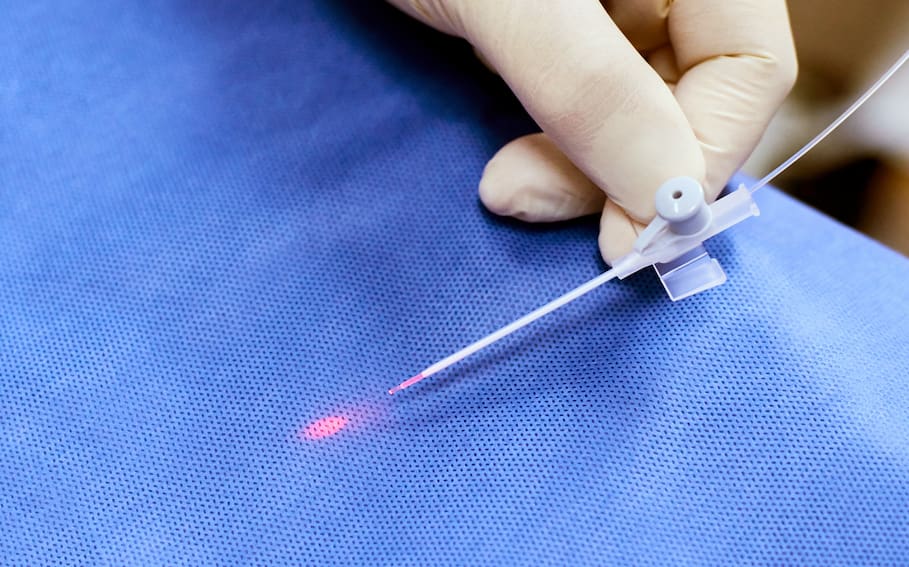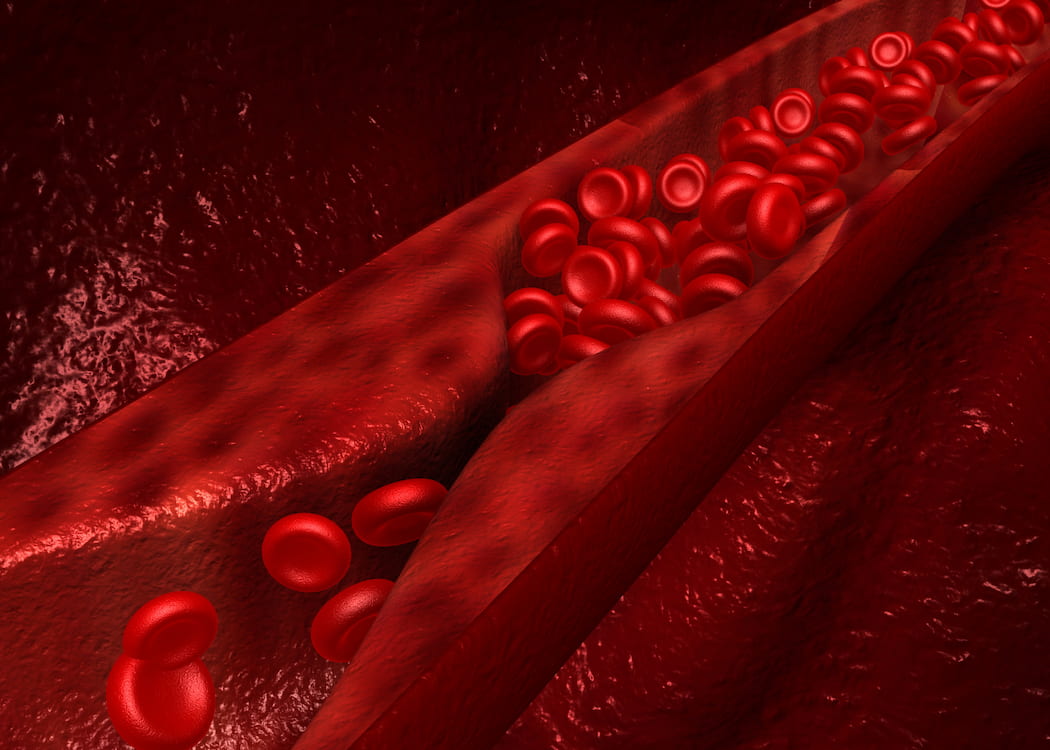Carotid Artery Stenting in Turkey
Healthy Türkiye helps you find the best carotid artery stenting in Turkey at affordable prices and adopts a 360-degree service approach in all areas of health through affiliated hospitals.
- Medical Treatment
- Cardiology Treatment in Turkey
- Carotid Artery Stenting in Turkey
- Cerebrovascular Disease Treatment in Turkey
- Colour-Duplex Sonography in Turkey
- Pericarditis Treatment in Turkey
- Peripheral Artery Disease Treatment in Turkey
- Coronary Heart Disease Treatment in Turkey
- EECP Treatment in Turkey
- Congenital Heart Treatment in Turkey
- Electrophysiology Study in Turkey
- Nuclear Cardiology Test in Turkey
- Pediatric Cardiology Treatment in Turkey
- Rheumatic Heart Disease Treatment in Turkey
- Spiro-Ergometry in Turkey
- Homepage
- Medical Treatment
- Carotid Artery Stenting in Turkey

About Carotid Artery Stenting in Turkey
Carotid artery stenting in Turkey is a procedure to treat carotid artery disease, a condition where fatty deposits form in the carotid arteries in neck and supply blood to the brain. This stenting procedure helps to free up clogged arteries and to restore blood flow to the brain, usually as a measure to treat or prevent stroke. It is performed by inserting a tiny balloon in the clogged arteries and inflating them in order to widen the area so that blood can flow freely to the brain. Stenting is then done by placing a metal coil or stent in the affected artery. In this way, it helps keep the artery open while decreasing the chance of narrowing it again.
Carotid artery stenting is an effective alternative treatment to carotid artery endarterectomy as demonstrated in randomized controlled clinical trials. In carotid stenting, an embolic protection instrument is placed across the carotid artery stenosis. The embolic protection device decreases the embolization of debris during the carotid artery stent deployment. The carotid artery stent is inserted via the embolization device which serves as a tracking mechanism for the carotid artery stent placement. Once the stent is deployed, the embolization device is eliminated leaving the deployed stent to improve carotid flow and stabilize and trap plaque.
Treatment options for carotid arteries stenosis contain medical therapy, heart bypass surgery to remove the atherosclerotic plaques (carotid endarterectomy or CEA), and the percutaneous placement of stents (CAS) in the affected area. In general, patients undergoing CEA or CAS will also be receiving medical therapy. During carotid artery stenting, the clinician threads a catheter through an artery up from the groin and up to the carotid arteries in neck.
The catheter has an attached balloon that extends the artery and inserts a stent to hold the artery open. Multiple stents may be put depending on lesion length. Because there is a risk of disrupting the plaque along the artery walls during this type of procedure, carotid stenting is usually used along with a filter, or distal embolic protection device (EPD) which is used to capture any debris that becomes dislodged, reducing the risk of embolization.
At Healthy Türkiye, we work in collaboration with cardiac surgery specialists having substantial expertise in effectively executing carotid artery stenting in Turkey. They have ensured various successful procedures for patients who have undergone carotid artery stenting at hospitals associated with our medical tourism company in Turkey. Our team makes sure that you receive the finest quality carotid stenting and continue your life with an effectively functioning carotid artery after the operation.

Carotid Stenting Procedure in Turkey
Carotid artery stenting (CAS) is a procedure in cardiology in Turkey that can be used to open narrowed carotid arteries. It is also defined as carotid angioplasty and stenting. There are two carotid arteries-one on each part of the neck that supply blood to the brain. Fatty build-up (plaque) can narrow or obstruct these arteries (stenosis). When one or both of your carotid arteries in neck are narrowed, this can make it difficult for blood to flow to the brain. The carotid artery stenting procedure may improve blood flow to the brain and lower your risk of having a stroke.
During carotid stenting, a small, expandable tube defined as a stent is permanently inserted into the carotid artery. To insert the stent, the doctor uses another tube called a catheter. The surgeon inserts the catheter into a large artery-most often the femoral artery in the groin and threads it through other arteries to the carotid artery. The surgeon will put dye into the catheter. The dye will make your carotid artery show up on X-ray images so that the surgeon can find the narrowed or blocked section of the artery.
There is a very thin guide wire inside the catheter. This guide wire is used to move a balloon and the stent into the carotid artery. The balloon is positioned inside the stent and inflated. This opens the stent and pushes it into position against the artery wall. The balloon is then deflated and removed, removing the stent in place. Over time, the cells lining the blood vessel will grow through and around the stent to help hold it in the area.
At Healthy Türkiye, carotid artery stenting aims to prevent you from having a stroke in the future. You may have experienced a TIA (mini-stroke). This is usually due to a narrowing in the main artery to your brain, the carotid artery, in your neck. In some cases, even if you have not had a TIA, the specialist surgeons involved in your case may still recommend treatment to the narrowed carotid stenting to reduce the risk of stroke in the future.
Reasons for Carotid Artery Stenting in Turkey
You might need carotid stenting if you have carotid artery stenosis. This means a narrowing in one or both of the carotid arteries in neck. Carotid stenosis is usually caused by the buildup of plaque on the inside of the artery. This is defined as atherosclerosis. Certain things can increase your risk of carotid stenosis. These contain smoking, high blood pressure, high cholesterol, diabetes, obesity, and aging.
Some people have symptoms of carotid artery stenosis. These can contain vision problems or loss of neurologic function in a specific part of the body. There is also a risk that a blood clot can form in the restricted carotid artery. If this blood clot gets to the brain, it can block the brain’s blood supply. This is defined as a stroke. It can cause serious damage to the brain and even death.
If you have mild carotid artery stenosis, your doctor may give you medicines to decrease your risk of stroke. If you have a more severe blockage, your doctor is more likely to recommend a procedure to open the artery. Your doctor is also more likely to advise a procedure if you have already had a stroke or mini-stroke. A mini-stroke is also defined as a transient ischemic attack (TIA).
Carotid artery stenting is one option. Another is a procedure called carotid endarterectomy. This operation removes plaque and any damaged part of the artery. Carotid stenting is less invasive. This means, in carotid artery stenting, is used only a small incision. Because of this, it may lead to a shorter recovery process. It also bypasses the risks of general anesthesia. At Healthy Türkiye, talk with your doctor about the benefits of carotid artery stenting for you.
Before the Carotid Stenting in Turkey
Before a scheduled carotid artery stenting in Turkey, your doctor reviews your medical history and performs a physical exam. Your doctor may also recommend one or more of the examinations before the procedure. This examination can be ultrasound. It is a scanner that passes over the carotid artery to produce images using sound waves of the narrowed artery and of the blood flow to the brain. Moreover, you may have an MRA scan and CTA. These exams ensure highly detailed images of blood vessels in neck by using either radiofrequency waves in a magnetic field or by using X-rays with contrast material.
In addition, your doctor suggests carotid angiography. During this exam, contrast material (visible on X-rays) is injected into an artery to better see and analyze the blood vessels in neck. You will receive instructions on what you can or cannot eat or drink before carotid artery stenting. Your surgery preparation may be different if you are already staying at the hospital before your procedure. The night before the procedure, you follow your doctor’s instructions about adjusting your current medications. Your doctor may instruct you to stop taking certain medications before carotid artery stenting, particularly if you take certain diabetes medications, nonsteroidal anti-inflammatory drugs (NSAIDs), or blood thinners.
Take approved medications with only small sips of water before operation. After the procedure, you arrange for transportation home. Carotid artery stenting may require an overnight hospital stay, and you would not be able to drive yourself home the next day because of the lingering effects of the sedative. Carotid artery stenting is considered a nonsurgical procedure because it is less invasive than surgery. At Healthy Türkiye, we meticulously follow all the steps before the procedure to perform the highest quality and successful Carotid artery stenting for our patients.

We Care About Your Health
Healthy Türkiye provides the best for your health and comfort. You will feel privileged with us.
7/24 Quality Personal Assistance Throughout Your Journey
Customizable for You All-Inclusive Packages
Get the Right Advice for your Health
How Is Carotid Artery Stenting Performed in Turkey?
Turkey offers a high-quality and successful carotid artery stenting procedure to its patients. The brain obtains its blood supply from two blood vessels, the carotids in the front, and the vertebral arteries at the back. If any of these vessels become narrow, the person may experience a TIA condition. In TIA person may experience a transient loss of consciousness, weakness in the limb, or blurring of vision. The narrowing of these vessels is usually caused by the deposition of fat and fibrous tissue due to atherosclerosis. It can also rarely occur due to inflammation of the blood vessels or arteritis. Till recently these people had open surgery as the only option. However, thanks to interventional radiology this narrow segment in the vessel can be safely opened through a small skin puncture by a procedure of cord carotid / vertebral artery stenting.
Carotid stenting contains taking a fine tube catheter under imaging guidance through a small puncture in the blood vessel of the thigh into the suspected blood vessel that supplies the brain. This procedure is performed under sophisticated imaging guidance. An angiogram is used to confirm the diagnosis that is made by doppler. After this step, a fine wire which has a specialized medical filter is navigated across the narrow segment and inserted beyond it in the normal vessel. The narrow segment is then enlarged with a balloon catheter. The balloon is then replaced with a fine metal mesh (stent). Further balloon dilatation is used if the lumen continues to be narrow after stenting.
Following the procedure, the filter is captured in a specialized tube and extracted. The puncture site in the groin is then compressed till hemostasis is achieved or an angio-seal instrument is used to prevent further bleeding. There is enough evidence in the treatment to conclusively say that carotid stenting is in no way inferior to open surgery for carotid stenosis. Narrowing of the vertebral artery can also be treated with the same technique. Some people feel a little lightheaded as the stretching of the artery can cause a drop in blood pressure. This can be corrected by fluids and medication given through the drip in your arm if required. Once the stent is inserted, the balloon is then deflated and removed leaving the stent supporting the artery wall, helping to keep it open.
An X-ray of the neck is then taken to control that the narrowed section has been successfully widened and that the stent is in the correct position. After the procedure, you will be returned to the room for observation. The nursing staff will also control your speech and movements to make sure they are normal. For the first 2-3 hours it is best to rest. This process is partly to prevent bruising or bleeding from the groin where the catheter was put in. The nursing staff will then let you get up and move around ensuring your observations are satisfactory.
After the Carotid Artery Stenting in Turkey
After the carotid stenting in Turkey, you may need to stay in the hospital for one to two days after the operation. After the surgery, the stent may remain in place or a vascular plug or suture may be used to achieve hemostasis. You will be required to lay flat (without bending your legs) after the stent is removed. This is necessary to prevent bleeding. You may receive medication to decrease discomfort. Your doctor will decide how long you will have to lay flat, which could be from two to six hours.
You plan on staying overnight in the hospital after the carotid artery stenting. You will be evaluated by your doctor, have a neurological exam, and have other tests, such as a carotid ultrasound, to evaluate the results of the carotid artery stenting. Your doctor will discuss the results of the operation with you and your family. Before you go home, you will be given directives about your medications, diet, activity, and when to call your doctor.
Your doctor will prescribe aspirin and Plavix (clopidogrel bisulfate) to take for one month after the carotid stenting. These medications help prevent blood clots from forming at the site where the stent was positioned. You follow your doctor’s instructions about how and when to take these medications. You should not stop taking these medications without first talking to your doctor. You will need to take it easy for a few days after the operation. You may climb stairs but prefer a slower pace. You should not strain during bowel movements. Gradually increase your activities until you reach your normal activity level. Healthy Türkiye is with you at every stage of your healing process.
Advantages of Carotid Stenting
All people who are known to have carotid artery disease will have their medications altered to try to decrease their risk of stroke or further stroke. When the level of carotid artery disease goes above a critical level additional treatment is often advised. This can be in the form of either an operation (carotid endarterectomy) or carotid artery stenting. Both carotid artery stenting and endarterectomy operations offer the potential benefit of preventing strokes in the future.
Benefits of carotid artery stenting:
- A newer procedure, but inevitably with less long-term follow-up data
- Minimally invasive (“keyhole”) operation
- Almost usually done under local anaesthetic
- Minimum likely to cause heart complications
- No issues with nerve damage in the neck
- Less essential bleeding problems
Healthy Türkiye meets all your expectations and gives you guaranteed results for carotid artery stenting in Turkey. We have lovely, caring, and very cooperative staff members who are there for you 24 hours a, making you feel safe and comfortable throughout all carotid artery stenting. Our medical surgeons work with patients to create the best carotid artery stenting plan. During the carotid artery stenting consultations, we clear all the patients’ doubts and make them comfortable discussing their problems and expectations.

2026 Cost of Carotid Artery Stenting in Turkey
All types of medical attention like carotid artery stenting are very affordable in Turkey. Many factors are also included in determining the cost of carotid artery stenting in Turkey. Your process with Healthy Türkiye will last from the time you decide to have a carotid artery stenting in Turkey until the time you are fully recovered even if you are back home. The exact carotid artery stenting procedure cost in Turkey depends on the type of operation involved.
The cost of carotid artery stenting in Turkey does not demonstrate many variations in 2026. Compared to costs in developed countries like the United States or the UK, carotid artery stenting costs in Turkey are relatively low. Therefore, it is no wonder patients from across the world visit Turkey for carotid artery stenting procedures. However, the price is not the only factor affecting choices, we suggest looking for hospitals that are safe and have carotid artery stenting reviews on Google. When people decide to seek medical help for carotid artery stenting, they will not only have had low-cost procedures in Turkey, but also the safest and best treatment.
At clinics or hospitals contracted with Healthy Türkiye, patients will receive the best carotid artery stenting from specialist doctors in Turkey at affordable rates. Healthy Türkiye teams provide medical attention to carotid artery stenting procedures and high-quality treatment to patients at a minimum cost. When you contact Healthy Türkiye assistants, you can get free information about the cost of carotid artery stenting in Turkey and what this cost covers.
Why Is Carotid Artery Stenting Cheaper in Turkey?
One of the main considerations before traveling abroad for carotid artery stenting is the cost-effectiveness of the whole process. Many patients think that when they add flight tickets and hotel expenses to their carotid artery stenting costs, it will become very expensive to travel, which is not true. Contrary to popular belief, round-trip flight tickets to Turkey for carotid artery stenting can be booked very affordably.
In this case, assuming you are staying in Turkey for your carotid artery stenting, your total travel expense of flight tickets and accommodation will only cost less than any other developed country, which is nothing compared to the amount that you are saving. The question “why is carotid artery stenting cheaper in Turkey?” is so common between patients or people simply curious about getting their medical treatment in Turkey. When it comes to carotid artery stenting prices in Turkey, there are 3 factors allowing cheaper prices:
The currency exchange is favorable for whoever looking for carotid artery stenting has a euro, dollar, or pound;
The lower cost of living and cheaper overall medical expenses such as carotid artery stenting;
For carotid artery stenting, incentives are given by the Turkish Government to medical clinics working with international clients;
All these factors allow for cheaper carotid artery stenting prices, but let’s be clear, these prices are cheaper for people with strong currencies (as we said, euro, dollar, Canadian dollar, pound, etc). Every year, thousands of patients from all over the world come to Turkey to get carotid artery stenting. The success of the healthcare system has increased in recent years, especially for carotid artery stenting. It’s easy to find well-educated and English-speaking medical professionals in Turkey for all kinds of medical treatment such as carotid artery stenting.

Why Choose Turkey for Carotid Artery Stenting?
Turkey is a common choice among international patients seeking advanced carotid artery stenting. Turkey’s health procedures are safe and effective operations with a high success rate like carotid artery stenting. The increasing demand for high-quality carotid artery stenting at affordable prices has made Turkey a popular medical travel destination. In Turkey, carotid artery stenting is performed by highly experienced and trained doctors with the most advanced technology in the world. Carotid artery stenting is done in Istanbul, Ankara, Antalya, and other major cities. The reasons for choosing carotid artery stenting in Turkey are as follows:
High-quality hospitals: Joint Commission International (JCI) accredited hospitals have dedicated carotid artery stenting units that are specially designed for patients. International and national strict protocols provide effective and successful carotid artery stenting for patients in Turkey.
Qualified experts: The expert teams include nurses and specialist doctors, together to carry out carotid artery stenting according to the patient’s needs. All the included doctors are highly experienced in performing carotid artery stenting.
Affordable price: The cost of carotid artery stenting in Turkey is affordable compared to Europe, the USA, the UK, Singapore, Australia, etc.
The high success rate: Highly experienced specialists, the best available technology, and stringently followed safety guidelines for post-operative care of the patient, resulting in a high success rate for carotid artery stenting in Turkey.
Is Carotid Artery Stenting Safe in Turkey?
Did you know Turkey is one of the most visited destinations for carotid artery stenting in the world? It is ranked one of the most visited tourist destinations for carotid artery stenting. Over the years, it has also come to be a very popular medical tourism destination too with many tourists coming in for carotid artery stenting. There are so many reasons why Turkey stands out as a leading destination for carotid artery stenting. Because Turkey is both safe and easy to travel to with a regional airport hub and flight connections to pretty much everywhere, it is preferred for carotid artery stenting.
The best hospitals in Turkey have experienced medical staff and specialists who have performed thousands of medical services such as carotid artery stenting. All procedures and coordination related to carotid artery stenting are controlled by the Ministry of Health in accordance with the law. Over many years, the greatest progress in medicine has been observed in the field of carotid artery stenting. Turkey is known among foreign patients for its great opportunities in the area of carotid artery stenting.
To emphasize, besides the price itself, the key factor in selecting a destination for carotid artery stenting is certainly the standard of medical services, the hospital staff’s high expertise, hospitality, and the safety of the country.
All-Inclusive Packages for Carotid Artery Stenting in Turkey
Healthy Türkiye offers all-inclusive packages for carotid artery stenting in Turkey at much lower prices. Extremely professional and experienced doctors and technicians carry out high-quality carotid artery stenting. The cost of carotid artery stenting in European countries can be quite expensive, especially in the UK. Healthy Türkiye provides cheap all-inclusive packages for a long and short stay of carotid artery stenting in Turkey. Because of many factors, we can provide you with many opportunities for your carotid artery stenting in Turkey.
The price of carotid artery stenting differs from other countries due to medical fees, staff labor prices, exchange rates, and market competition. You can save much more in carotid artery stenting compared to other countries in Turkey. When you purchase a carotid artery stenting all-inclusive package with Healthy Türkiye our healthcare team will present hotels for you to choose from. In carotid artery stenting travel, you will have the price of your stay included in the all-inclusive package cost.
In Turkey, when you purchase carotid artery stenting all-inclusive packages through Healthy Türkiye, you will always receive VIP transfers. These are provided by Healthy Türkiye, which is contracted with highly qualified hospitals for carotid artery stenting in Turkey. Healthy Türkiye teams will organize everything about carotid artery stenting for you and have you picked up from the airport and safely brought to your accommodation. Once settled in the hotel, you will be transferred to and from the clinic or hospital for carotid artery stenting. After your carotid artery stenting has been successfully completed, the transfer team will return you to the airport in time for your flight home. In Turkey, all packages of carotid artery stenting can be arranged upon request, which relaxes the minds of our patients.
The Best Hospitals in Turkey for Carotid Artery Stenting
The best hospitals in Turkey for carotid artery stenting are Healthy Türkiye, Memorial Hospital, Acıbadem International Hospital, and Medicalpark Hospital. These hospitals attract patients from all over the world seeking carotid artery stenting due to their affordable prices and high success rates.
Frequently Asked Questions
Do not do strenuous activity for 7 to 10 days after your operation. Do not lift anything heavier than 10 pounds for 2 to 3 weeks after the carotid artery stenting procedure. Ask the doctor when you can expect to return to work. You shave carefully around your incision.
Stents are made to be permanent. Once a stent is put, it is there to stay. In cases when a stented coronary artery does re-narrow, it generally happens within 1 to 6 months after placement.
After a day or two, you can return to normal life. It is wise to avoid strenuous activities still, though, for about 5 to 7 days or until the incision site is completely closed. Instead, you should take short walks to keep the cardiovascular system healthy.
It depends primarily on the underlying heart disease, age, and medical condition of the person. A younger person, for example, who has a strong heart and has never experienced a heart attack, will be expected to live a full and active lifespan.
In cases where a blockage is 70 percent or higher, treatment by either carotid endarterectomy or carotid angioplasty and stenting will be advised.
One concern shared by many people is if the stent will be able to move around in the arteries once it has been inserted. In short, the answer is no. Once a stent is opened in an artery, the tissue cells of the artery wall start to grow over the stent. The stent evolves a part of the artery wall and cannot move.
Do not consume processed foods, or foods high in saturated and trans-fats. When diet and exercise are not enough to check cholesterol, you may need medicines. Reducing blood sugar. High blood sugar (glucose) can cause harm to the lining of the carotid arteries.
